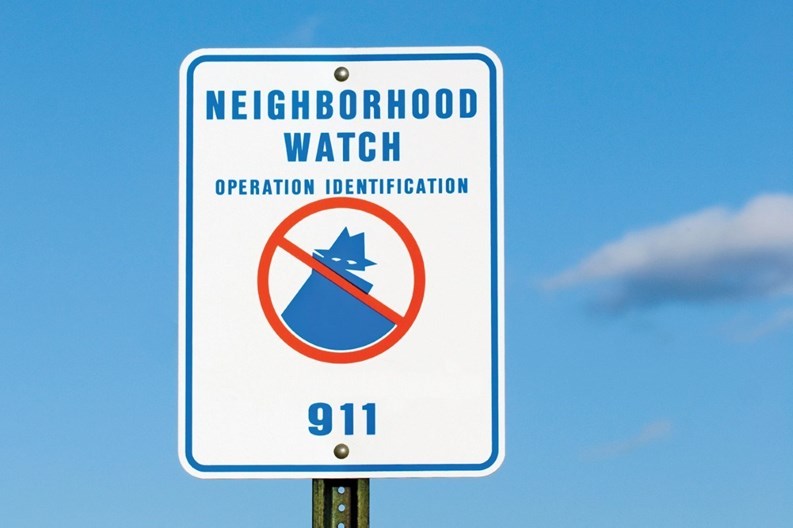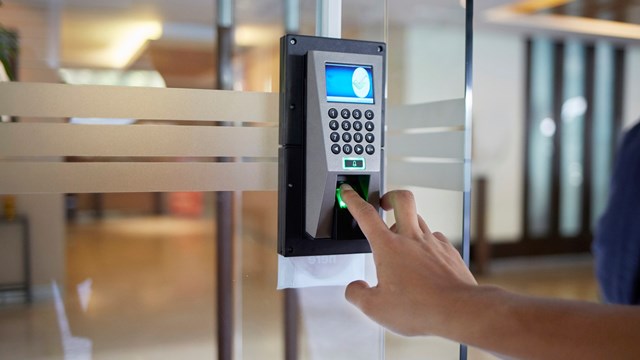When it comes to our homes, nothing is more important than feeling safe. We want to know that our kids can ride their bikes, that we can walk the dog at night, that we can go on vacation without wondering what will happen when we’re gone.
Although many believe that high-tech systems and private security firms are the only ways to achieve those goals, there are a number of simple, common-sense approaches to safety that can also be effective. Above all else, a safe community is a community that knows itself well. “Look back to the 1940s and 1950s when neighborhoods were safer places,” says Matt Peskin, executive director of the National Association of Town Watch. “It was because everyone knew their neighbor. People looked out for each other. Theyhung out with the cop that walked their beat.”
Carolyn MacNeil, director of the Boston Police Department’s Neighbor-hoodWatch Unit, agrees. “People aren’t rooted in their neighborhoods the way they were many years ago,” she says. “Often, today, people don’t know their neighbors at all.”
Get to Know “Normal” Activity
That’s not to say people should be spending their days spying on their neighbors. “But you should at least know their first names,” says Sgt. Michael Lawrence, crime prevention officer for the City of Shelton Police Department in Connecticut, and understand a bit about what constitutes “normal” activity at your community association. Lawrence cites an exampleof a person who saw a moving van pull up to their neighbor’s residence, wondering how they hadn’t known they were moving. It turns out they weren’t – someone was stealing the contents of their unit.
“When we have burglaries, it usually turns out to be someone that was spotted in a neighborhood but no one called the police,” says Lawrence. “Youdon’t necessarily have to call 911, just call the direct number. Or if you’re not sure what’s going on but think it’s unusual, at least get a description and a license plate number.”
It’s also important for management to develop an ongoing relationship with local law enforcement. Peskin suggests inviting police officers to visit and speak to association residents. “Whether it’s city or county officers, they’ll come out to talk with people” and help educate on safety and also take questions, Peskin says. “This give and take (between residents and officers) is really important. It makes people more comfortable with local law enforcement. Most people only have contact with the police when something goes wrong. This breaks walls down and helps energize residents.”
Lawrence suggests that management should update their security plans on an annual basis. To establish these plans, managers can go to their local police departments if they have a crime prevention unit or reach out to other local law enforcement organizations. Private security firms also can provide detailed plans on how to improve and enhance security within the condo community. Best of all, someinsurance companies will provide a rate reduction if an HOA can show they have a security plan in place.
Management also should keep their residents informed of goings-on within the HOA and the community at large. “We can give general bulletins through e-mail or tell you what type of crime is trending in that neighborhood,” Lawrence says. But, he adds, sometimes that kind of information excites people and may make them nervous. It’s a delicate balance. No one wants to scare residents, but unfortunately, “we’re not living in Mayberry anymore,” Lawrence says.
Perhaps the best way to deter crime is simply to follow some basic guidelines and make sure key tools for prevention are in place. Lighting, for example, is absolutely key for safety. “It’s very important whether it’s on your property or on your street,” MacNeil says. Thatcan mean installing motion lights in dark areas inside a garage or putting lights on a timer when out of town or away for the evening.
“Criminals won’t go into well-lightedareas,” Peskin says. “The last thing they want is to be seen or heard.”
How that lighting is used can be just as important as how much of it there is. “You have to make sure the light is directed properly,” Lawrence says. “Youdon’t need a hundred lights if you put in the proper lighting and make sure it’s pointing in the right direction.”
The same goes for interior spaces like laundry rooms and storage areas. Bad elements are drawn to darkened areas where they hope to go unnoticed – which is why it’s important, in opencommon areas, to provide as much light as possible for as many hours of the day as possible.
Video Cameras Good Deterrent
Video cameras provide another relatively inexpensive way to deter criminals. In fact, even the appearance of a video surveillance system can be powerful. For someone looking to stealor vandalize, a quick glance up at a camera may scare them off – whether it’s actually recording anything or it’s a dummy. But, Lawrence says, operational camera systems are becoming cheaper every day and can be worth the investment.
And when it comes to easy targets, nothing is worse than unlocked doors or windows. “Get good locks,” MacNeil says. It’s worth it to spend a bit more on simple things like deadbolts and viewfinders in the door. It’s important, too, to make sure that otheraccessible areas in a home or building are secured. Window air conditioners, for example, that are not installed correctly or placed securely in the window frame can offer relatively easy access for someone with a screwdriver and an ability to lift 50 pounds.
Management, too, should not be shy when it comes to asking questions of new employees or service providers. Lawrence suggests getting background checks wherever possible. People working within a community “know the ‘m.o.’ of the complex, they have free rein and can observe what’s going on,” he says. And when it comes to individual units, “you should be aroundwhen workers are in your house,” adding that he’s heard of people who leave when painters are redoing their living room and later find checkbooks or credit cards missing. “The temptation is there,” Lawrence says.
Ultimately, safety and well-being are about listening to instincts. “If you pullinto an underground garage and don’t feel like you want to park there, then don’t,” Lawrence says. If it looks like something strange is going on down the street, phone the police. If you see someone in the laundry room you don’t know, then leave and let someone know. As the old adage goes, it’s always better to be safe than sorry.
Whether it’s in the form of a formal neighborhood watch program or just a willingness to keep an eye on someone’s house while they’re on vacation, safety is also about people pulling together and watching out for one another. Common sense and common goals, all for the good of the community.
Liz Lent is a freelance author and a frequent contributor to New England Condominium magazine.







Leave a Comment